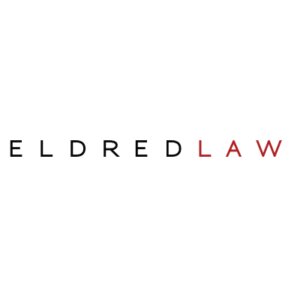Best Defamation Lawyers in United Kingdom
Share your needs with us, get contacted by law firms.
Free. Takes 2 min.
Or refine your search by selecting a city:
List of the best lawyers in United Kingdom
About Defamation Law in United Kingdom
Defamation in the United Kingdom is primarily governed by the Defamation Act 2013. It refers to false statements made by one party about another, which may harm the latter's reputation. Defamation law is divided into two categories: libel, which pertains to written or published defamatory statements, and slander, which covers spoken words. The UK has a reputation for having relatively claimant-friendly defamation laws due to its strong stance on protecting individuals from harm to their character and reputation.
Why You May Need a Lawyer
Engaging a solicitor for defamation-related issues is often essential because these matters can be complex and involve nuanced legal arguments. Common situations where legal assistance may be required include:
- Being a victim of defamation and needing to file a lawsuit to seek damages or an apology.
- Defending against a defamation claim if someone accuses you of making false statements.
- Understanding the potential implications of statements you intend to publish or broadcast.
- Negotiating an out-of-court settlement to avoid lengthy litigation.
Local Laws Overview
The Defamation Act 2013 brought crucial changes to defamation law in the UK. Key aspects include:
- Serious Harm Threshold: Claimants must prove that the defamatory statement caused or is likely to cause serious harm to their reputation.
- Truth and Honest Opinion Defences: Defendants can use these defences by proving the statement is true or is an honest opinion, respectively.
- Publication on a Matter of Public Interest: Provides a defense if the defendant can show the statement was on a matter of public interest and they reasonably believed publishing it was in the public interest.
- Single Publication Rule: Limits claims to the first publication, preventing repeated lawsuits over the same statement in different publications.
Frequently Asked Questions
What is the difference between libel and slander?
Libel refers to written or otherwise permanently expressed defamatory statements, whereas slander involves temporary, spoken words.
Can a true statement be defamatory?
No, truth is a complete defense to defamation in the UK. A statement must be false to be considered defamatory.
What constitutes 'serious harm' in a defamation case?
'Serious harm' means the statement must significantly harm the claimant's reputation, reducing them in the estimation of right-thinking members of society.
How long do I have to file a defamation lawsuit?
In the UK, the limitation period for bringing a defamation claim is one year from the date of the publication of the alleged defamatory statement.
What can I recover if I win a defamation case?
Successful claimants may recover damages and, in some cases, an injunction to prevent further distribution of the defamatory statement.
Is an apology necessary if defamation is proven?
While not mandatory, an apology or retraction can sometimes be part of the settlement or remedy ordered by the court.
Can corporations sue for defamation?
Yes, corporations can sue for defamation if the false statement has seriously harmed their reputation or caused financial loss.
Does defamation law apply to statements made online?
Yes, online statements, including social media posts, can be subject to defamation claims in the same manner as traditional media.
What is the 'single publication rule'?
This rule limits defamation claims to the first publication of the statement, preventing multiple suits over repeated publications.
Can I defend myself if accused of defamation?
Yes, common defenses include proving the statement is true, asserting it was an honest opinion, or showing it was published on a matter of public interest.
Additional Resources
If you're seeking further information or assistance, the following resources may be helpful:
- Citizens Advice Bureau: Offers free guidance on various legal issues, including defamation.
- Law Society of England and Wales: Provides a searchable directory of solicitors who specialize in defamation law.
- Media Law Resource Centre: Offers insights into media and defamation law globally.
- Ministry of Justice: Government body that includes details about the legal system and access to legal support services.
Next Steps
If you believe you have a defamation case or you're defending against one, it's crucial to consult with a knowledgeable defamation lawyer. Here are steps you can take:
- Document everything: Collect all relevant evidence, including publications or communications that are the subject of the defamation.
- Seek initial legal advice: Many lawyers offer free initial consultations to discuss the basics of your case and the likelihood of success.
- Consider a settlement: Early legal counsel will help you understand whether seeking an out-of-court settlement might be advantageous.
- Proceed with a claim or defence: If advised, initiate or defend a claim within the statutory time limits.
Acting swiftly and seeking the right legal help are critical in defamation cases, considering the complex nature of proving harm and navigating available defenses.
Lawzana helps you find the best lawyers and law firms in United Kingdom through a curated and pre-screened list of qualified legal professionals. Our platform offers rankings and detailed profiles of attorneys and law firms, allowing you to compare based on practice areas, including Defamation, experience, and client feedback.
Each profile includes a description of the firm's areas of practice, client reviews, team members and partners, year of establishment, spoken languages, office locations, contact information, social media presence, and any published articles or resources. Most firms on our platform speak English and are experienced in both local and international legal matters.
Get a quote from top-rated law firms in United Kingdom — quickly, securely, and without unnecessary hassle.
Disclaimer:
The information provided on this page is for general informational purposes only and does not constitute legal advice. While we strive to ensure the accuracy and relevance of the content, legal information may change over time, and interpretations of the law can vary. You should always consult with a qualified legal professional for advice specific to your situation.
We disclaim all liability for actions taken or not taken based on the content of this page. If you believe any information is incorrect or outdated, please contact us, and we will review and update it where appropriate.
Browse defamation law firms by city in United Kingdom
Refine your search by selecting a city.
















